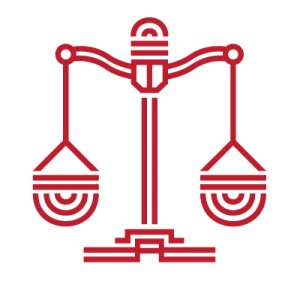Best Health Care Lawyers in Midrand
Share your needs with us, get contacted by law firms.
Free. Takes 2 min.
List of the best lawyers in Midrand, South Africa
About Health Care Law in Midrand, South Africa
Health care in Midrand operates within the broader South African health system, which integrates both public and private sectors. The area boasts several hospitals, clinics, and specialized practices, with services regulated by national health legislation. Health care law in South Africa governs patient rights, medical malpractice, health insurance, confidentiality, and public health standards. It also oversees the relationships between patients, providers, insurers, and regulatory authorities to ensure fair and ethical medical practice.
Why You May Need a Lawyer
Legal assistance in health care matters can be crucial for a variety of reasons. Some common situations where individuals may require a lawyer include:
- Experiencing medical malpractice or negligence by a health care provider
- Facing issues with medical aid schemes or insurance claims
- Needing help with understanding patient rights and informed consent
- Dealing with disputes about access to medical records or confidentiality breaches
- Challenging disciplinary action for health care professionals
- Concerns about end-of-life decisions or advance directives
- Navigating the consequences of inadequate or denied treatment
- Seeking compensation for harm caused by pharmaceutical products or devices
Local Laws Overview
Health care in Midrand is governed primarily by national legislation, particularly the National Health Act and the Health Professions Act. These laws outline patient rights, obligations of health care providers, and the operations of both public and private health institutions. The Medical Schemes Act regulates health insurance and medical aid schemes, while the Protection of Personal Information Act manages the confidentiality and protection of patient data. Key legal requirements in Midrand and across South Africa include:
- Patients have the right to informed consent before any medical procedure
- Health care providers are held to professional standards of care and face consequences for negligence
- Access to emergency medical care cannot be unfairly denied
- Personal health information must be protected and only disclosed under lawful circumstances
- Discrimination in access to health care is unlawful
- Patients have the right to access their own medical records
- Medical aid scheme disputes are handled through specific regulatory channels
Frequently Asked Questions
What rights do I have as a patient in Midrand?
You are entitled to safe and quality medical care, respect for your autonomy, confidentiality, access to information, informed consent for treatments, and the right to participate in decisions about your health.
Can I access my medical records?
Yes, you have the right to request and obtain your medical records. Providers are required to release this information except in situations where it could harm you or third parties, or where legal exceptions apply.
What should I do if I experience medical negligence?
Document your experience as thoroughly as possible and seek advice from a health care lawyer. You may be able to file a complaint, pursue compensation, or lodge a formal case of malpractice.
How is medical aid regulated?
Medical aid schemes are regulated by the Medical Schemes Act and overseen by the Council for Medical Schemes, ensuring fair practice, transparency, and dispute resolution.
What are my rights in an emergency?
All patients have the right to receive emergency medical care, regardless of their ability to pay or insurance status. Denial of emergency treatment is unlawful in most circumstances.
Can my confidential information be shared without my permission?
Generally, your health information is confidential. It can only be shared with your consent or when required by law, such as in cases of notifiable diseases or court orders.
How do I report a health care professional for misconduct?
Professional misconduct should be reported to the relevant regulatory councils, such as the Health Professions Council of South Africa. Legal advice can help guide you through this process.
Is discrimination in health care legal?
No, discrimination based on race, gender, disability, or other protected characteristics in access to health care is prohibited under South African law.
Can I refuse medical treatment?
Yes, you have the right to refuse medical treatment, provided you have the capacity to make informed decisions. Exceptions apply in certain situations, such as public health emergencies.
Who can make decisions for a patient who is unable to consent?
If a patient lacks legal capacity, a legal proxy, next of kin, or court-appointed curator may make decisions. The law ensures these decisions reflect the patient’s best interests and previously expressed wishes.
Additional Resources
When seeking more information or assistance, the following resources can be valuable:
- Health Professions Council of South Africa (HPCSA) - Regulates health care professionals and handles complaints.
- South African Department of Health - Provides policy guidance and patient rights information.
- Council for Medical Schemes - Addresses disputes involving medical aid schemes.
- Legal Aid South Africa - Offers basic legal advice for qualifying individuals.
- Office of Health Standards Compliance - Monitors standards in health institutions.
- Private law firms and attorneys in Midrand - Provide specific legal services in health care law.
Next Steps
If you believe you require legal assistance regarding a health care matter in Midrand:
- Gather all relevant documents, including medical records, correspondence, and insurance information.
- Make detailed notes of your concerns, events, and any steps you have already taken.
- Consider consulting with a lawyer who specializes in health care or medical law based in or near Midrand.
- Contact relevant regulatory bodies if you wish to pursue a complaint while seeking legal input.
- Understand your rights and obligations from reputable resources or a qualified legal professional.
Lawzana helps you find the best lawyers and law firms in Midrand through a curated and pre-screened list of qualified legal professionals. Our platform offers rankings and detailed profiles of attorneys and law firms, allowing you to compare based on practice areas, including Health Care, experience, and client feedback.
Each profile includes a description of the firm's areas of practice, client reviews, team members and partners, year of establishment, spoken languages, office locations, contact information, social media presence, and any published articles or resources. Most firms on our platform speak English and are experienced in both local and international legal matters.
Get a quote from top-rated law firms in Midrand, South Africa — quickly, securely, and without unnecessary hassle.
Disclaimer:
The information provided on this page is for general informational purposes only and does not constitute legal advice. While we strive to ensure the accuracy and relevance of the content, legal information may change over time, and interpretations of the law can vary. You should always consult with a qualified legal professional for advice specific to your situation.
We disclaim all liability for actions taken or not taken based on the content of this page. If you believe any information is incorrect or outdated, please contact us, and we will review and update it where appropriate.











